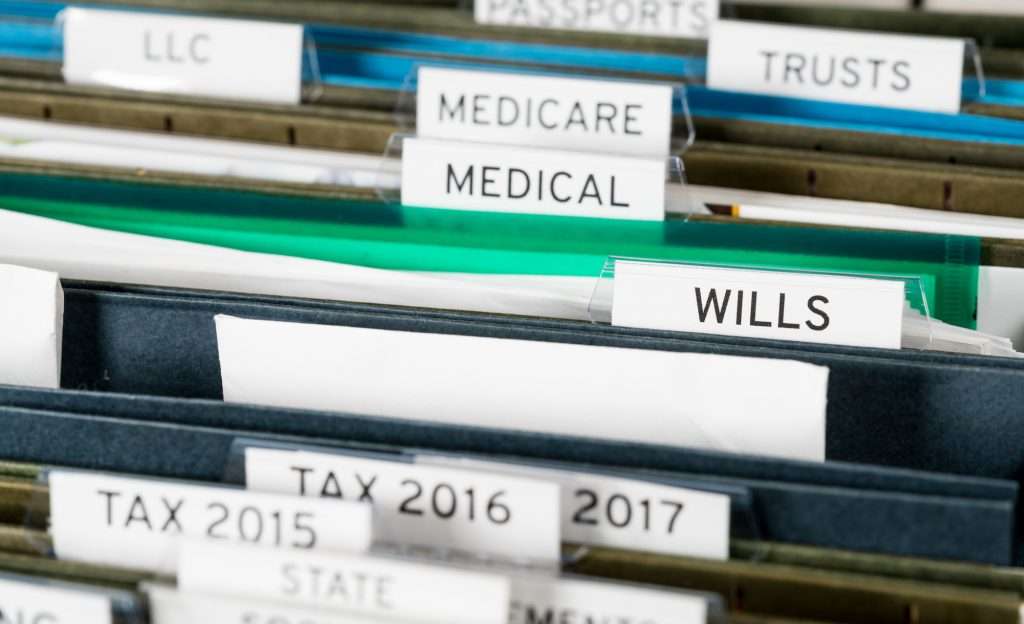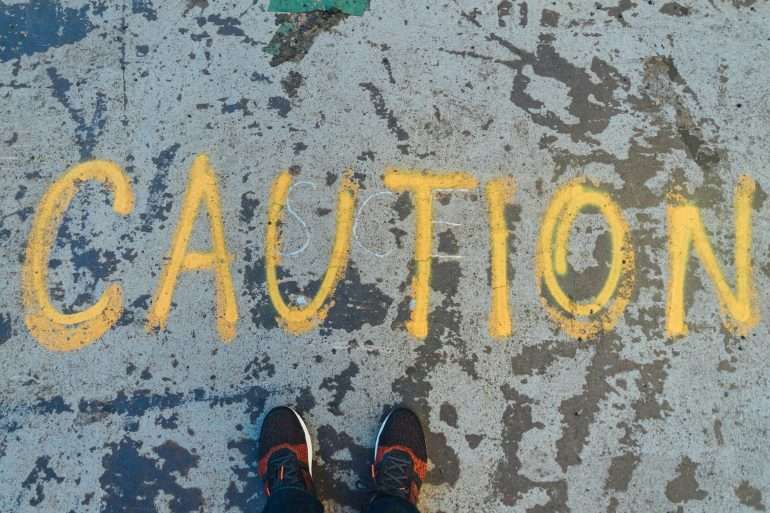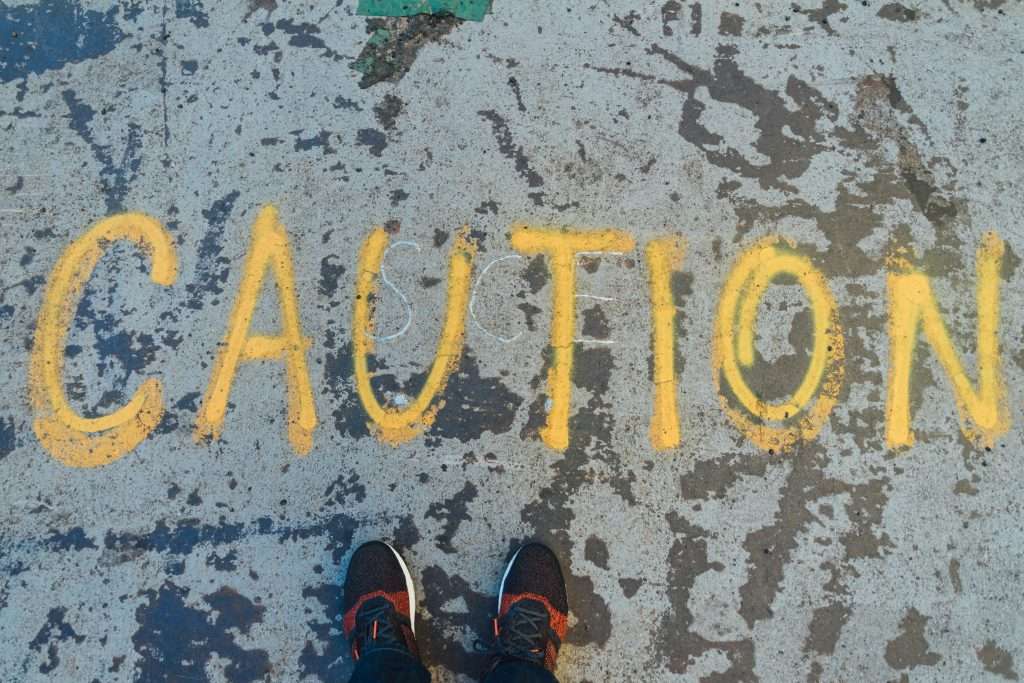We understand that it’s not easy to talk about estate planning; after all, who wants to think about what might happen when they’re no longer here and the people they will leave behind? It is a complex and emotionally charged topic that carries a potential for family conflict. Not to mention that the laws surrounding Wills are often complex.
Because the process can often feel like overwhelmingly difficult to navigate, many people make silly
mistakes or forget important steps when writing their Will.
Even the tiniest of errors can result in great confusion and conflict and ruin the best-laid plans for passing down your estate. They can also open the door for the contents of the Will to be disputed by your friends and family members and can potentially lead the Will to be completely void.
To avoid this potential ordeal, we invite you to explore this list of common mistakes that people when making a Will or estate planning.
Mistake #1: Not having a Will at all
Of course, contemplating death is a disconcerting task, and making preparations for it can be expensive. However, failing to create the proper documents is the greatest disservice you can do for your loved ones.
If you die ‘intestate’ with no Will, your estate is more exposed to potential claims or litigation. If your affairs are complicated or there is dissension in the family, your estate could be dragged through court for years, incurring legal fees that could amount to thousands or more.
Even if your wishes exactly matched your Province’s intestate distribution formula (which is unlikely) the whole process takes much longer without a Will and assets are frozen in the meantime.
If you are married with children, most Provinces do NOT have everything automatically going to your spouse if you die without a Will.
Mistake #2: Not letting family know your Will exists or where it is
Making a Will is the most important first step, but it will be useless if no one is aware of its existence or location after you’re gone.
You’ll want to ensure your Will is left in a safe place that is still accessible – like a locked drawer, home safe, or safe deposit box. You should also make sure the people you love know where to look for it when the time comes.

Mistake #3: Your Will was incorrectly witnessed
A Will is not a valid legal document unless it’s signed in the presence of two witnesses.
In most jurisdictions, the testator (Will-maker) must sign the Will in the presence of two witnesses to make it legally valid, and both the witnesses and the testator need to be present at the same time. The
witnesses have reached the age of majority for your Province and physically present at the time of signing the Will.
Having only one witness or none at all could invalidate your entire Will.
There are a couple of exceptions to this, including holographic Wills, but these are not accepted in all Provinces (notable BC where even a handwritten Will must be signed by two witnesses).
Some Provinces do allow “virtual witnessing” but this is usually only permitted if very specific conditions are met.
Mistake #4: Failing to keep the original
Many people mistakenly think a photocopy of a Will is valid, but an executor needs an original Will document to legally administer your estate. Without the original, the executor will have a complicated and expensive process to enable them to get a Grant of probate before they can ensure that your wishes are fulfilled.
A copy may be accepted by the courts if it can be proven that the original was accidentally lost or destroyed, for example, in a house fire. But usually it is presumed that the original was intentionally destroyed if it cannot be found.
Mistake #5: Letting your estate plan go stale
Wills and estate plans shouldn’t be a ‘set and forget’ approach, but
reviewed every few years because intentions and circumstances can change over time.
A common mistake when making a Will or an estate plan is to never look at it again, after initially drawing it up. Wills and estate plans shouldn’t be a ‘set and forget’ approach but reviewed every few years because intentions and circumstances can change over time.
Life is full of unexpected events and failing to review and update your Will periodically to reflect these changes can lead to complications and unintended consequences. For example, not updating your Will after a separation can result in your estranged spouse inheriting assets you intended for someone else.
Certain life events that should prompt you to consider updating your Will include:
- the birth of another child or grandchild;
- a marriage or divorce;
- the death of a loved one;
- moving to a different province, state or country;
- new business ventures;
- buying a new home or another investment;
- A change in circumstance for anybody named in the Will.
There are many other complicated situations where, if the right trusts aren’t set up, or if a Will isn’t updated, then family members (such as kids from a first marriage or step-children) could unintentionally get left out.
Similarly, you may need to change the executor of your Will if their circumstances change. For example, they might move abroad, which could have a serious impact on their ability to execute your Will. If your named executor is an ex-spouse, a former friend you’re no longer in touch with or an estranged child, you should name a different executor. Also, a sibling who was named as executor could be dead or estranged, in a nursing home, or otherwise incapacitated.
Appropriate guardians for children, too, can change over time, which is why periodic reviews of your Will are critical.
Mistake #6: Making changes to your Will after it’s been signed
Contrary to popular belief, making changes to a Will after it has been signed and witnessed is not as straightforward as crossing out items and adding a note in its place. Alterations require a formal process to ensure legal validity.
To revise an existing Will, you will have to make an official alteration called a codicil, that must be signed and witnessed in the same way as a Will. Codicils can be a complicated process, particularly if you have more than one codicil. It is therefore recommended that you create a new Will altogether.
Mistake #7: No ‘Plan B’
If your Will does not provide for a ‘Plan B’, then the result is that potentially the whole, or at least part, of your estate is left without any destination.
The error that many people make is that they don’t have a ‘Plan B’ if the testator outlives their beneficiaries or if the beneficiaries die before the estate is settled.
If your Will does not provide for this eventuality, then the result is that potentially the whole, or at least part, of your estate is left without any destination. The estate will fall into ‘intestacy’ which means that the default rules as set out in succession law would apply to the division of your estate, which may not reflect your overall wishes.
If you’re fortunate enough to live a long life, there’s every chance that you could outlive one or more of the people named in your Will. It’s crucial then to include backup plans and conditional scenarios to account for the untimely death of any of your beneficiaries and update your Will accordingly if a beneficiary passes away.
This would also apply if you were involved in a common accident with your main beneficiary.
If you name beneficiaries A, B and C to have an equal share of all of your assets, you could also include in your Will that, if one or more of them dies, the assets are either shared equally between the surviving beneficiaries, or the deceased beneficiary’s children receive their share.
Mistake #8: Failing to appoint a guardian for the kids
Assets and money aren’t the only reason writing a Will is so important. They also specify who will take care of your children if you pass away as the only surviving parent. The decision is even more vital if you have young children, so it’s important to think about who you would like to look after them after you die.
If you don’t nominate someone to care for your children in the event that something happens to you, the family court will appoint someone on your behalf.
It’s also critical to appoint a guardian so the children have someone to oversee any money that is left to them. Not doing so exposes loved ones to unnecessary stress and financial hardship especially if legal action is required.
Mistake #9: Excluding any step-children
If you have step-children with a partner and would like to include them as a beneficiary, simply stating “my children” in your Will doesn’t automatically cover them. This applies even if you have raised them from birth. If you want your step-children to be included in your Will, you will need to explicitly mention them by name to successfully pass assets on to them.
Legally adopted children, however, will be considered the same as biological children.
Mistake #10: Forgetting to set up trusts for minors
It’s important to consider the age of the individuals you name as beneficiaries. Incorporating trust provisions for minors ensures that they do not gain unrestricted access to their inheritance prematurely, should you pass away while your children are still financially immature. The trust provisions can specify that if your beneficiaries inherit at a young age, the assets will be held in trust and dispersed according to the terms of your Will until they attain the age you specify.
Mistake #11: Choosing the wrong executor
Your executor is the person who will administer your estate and carry out your wishes. Naming the ‘wrong’ executor for your Will can throw off your best intentions either due to personality clashes or a lack of ability. There is also risk the process can be dragged out, causing long delays and a period of anxiety for the beneficiaries while they wait for their inheritance.
Is your executor older than you? Often unreliable? Too busy with their own affairs? You may wish to look for another executor such as a family member, close friend or trusted advisor who is more trustworthy, reliable, and capable of handling the responsibilities involved. It is not necessary to hold any professional qualifications to act as executor.
Let the executor know you’re choosing him or her before you draft the Will to make sure they will accept the responsibility.
Your Will should also be reviewed frequently to verify that whomever you’ve chosen as your executor is still the best choice.
The service at LegalWills also allows you to name up to three backup Executors in case your first choices are unable or unwilling to serve.
Mistake #12: Not detailing the personal stuff
Often personal items are the most passionately fought over because of their sentimental value. With that in mind, it is best to be as specific as possible about who gets what.
Consider making a list and describe each item as carefully as possible in a memorandum that you keep with your Will.
Mistake #13: Failure to be specific/being too specific
Being too vague in your Will can cause its own share of problems. For example, if you declare in your Will that Kate gets your favorite Picasso painting, what happens if you have more than one Picasso painting? And did you mean daughter Kate, cousin Katy or Aunt Katherine?
It can be surprising how heirs can fight over low-value belongings that have sentimental value if the Will doesn’t specify who those items are to go to. Including detailed descriptions of the particular items you wish to bequest, proper names of your beneficiaries, and your relationship to the beneficiary may go a long way to preventing confusion as to what you intended at the time you made your Will. If you think there might be some familial fighting, consider attaching a memorandum to your Will that explains the reasoning behind your decisions.
Unintentionally broad instructions in your Will can pose challenges for your executor, too. For example, Paul had four children. His Will left his estate to “all my surviving children.” Sounds good in theory, but is that what Paul meant? If his daughter were deceased, did he really want his estate divided between his other three children, or would he have wanted his deceased daughter’s share to pass to her children (his grandchildren)?
Similarly, if Sophie’s Will left her estate equally to “all my descendants.” At the time she drafted her Will, she had two children and no grandchildren. But by the time she died, her son had four children and her daughter none. Under some laws the term “descendants” includes children, grandchildren, great grandchildren, etc. Thus, by law each descendant gets one-sixth of her estate. Is this what Sophie wanted, or do you think she wanted her estate to go half to her son and half to her daughter?
On the other hand, being too specific can also be detrimental in years to come. A frequent issue is the lack of instructions for the disposition of an asset if it is no longer in your possession at the time of death, or if the asset has been liquidated. For example, if you state that you wish for your “white Mercedes” to be left for your eldest child, but you later sell the car or trade it in for a red Mercedes, it can lead to confusion and potential disputes. Is your eldest child to whom the car is bequeathed entitled to receive a cash equivalent or a replacement car?
Although the specific items bequeathed in a Will may not need to remain in the exact form as when the Will was made, the Will would require precise wording to allow the executor to extend the bequest to the replaced item so as to prevent the legacy from lapsing.
Failure to consider such possibilities can lead to family disputes after death which can significantly delay the winding up of the estate administration. Any costs incurred to establish the legal position will ultimately deplete the overall value of the estate to the detriment of the beneficiaries, especially if matters must be resolved by going to court.
You can get around this by being more general with the details of certain assets – opt for general terms like “the vehicle in my possession” or, if you do want to be very specific, it’s best to always update your Will after buying or selling major assets so that your wishes can be accurately followed.
Mistake #14: Not allowing for flexibility
Occasionally, the wording of Wills can lead to unintended outcome, such as leaving more or less money than desired to an individual or charity.
For example, imagine a woman with an estate worth $10 million whose Will says to leave $1 million to charity and the rest to his children. Under that scenario, the children would get $9 million. But if the estate’s value drops and is now worth only $4 million, the charity would still receive $1 million and the children only $3 million.
You should also exercise caution when bequeathing specific stocks or bank accounts to a particular child. If the asset is no longer owned or has dropped precipitously in value at the time of your death, that child could inadvertently be left with nothing or substantially less than their siblings.
It’s imperative to avoid common mistakes that can have far-reaching consequences when creating a Will.
By regularly have a clearly written Will that is regularly reviewed and updated, considering all your assets, and selecting the right executor, you can go on living stress-free knowing that your wishes will be honoured and that you will not be leaving a mess behind for your loved ones in the future. Also, it will help ensure that the administration of your estate runs smoothly and quickly.
- Most Common Will-Writing Mistakes - October 3, 2024
- Creating Your Will – What Not to Include - September 18, 2024
- Living Will and Last Will: What’s the Difference? - August 6, 2024

















